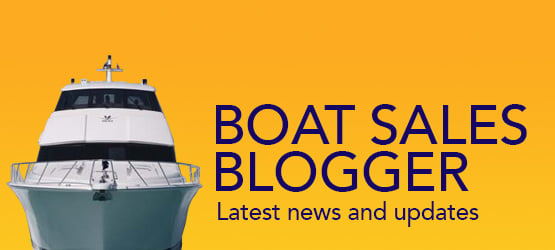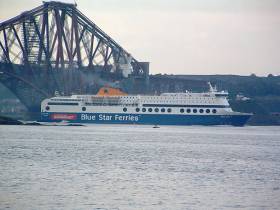Displaying items by tag: Brexit & Belgium
Buying or Selling Boats in the UK Proves Costly Post Brexit
Two months after Brexit, there's no doubting the new seascape for importing boats into Ireland. VAT and tariffs' imposition means it is now a costly exercise to either buy or sell a boat in the UK, traditionally a big marketplace for Irish boat buyers and sellers.
Once a rich pool of well-kept boats at attractive prices, the handy UK market for second-hand boats now has 33% in taxes slapped on top since January 1st.
It turns out that when the greatest trade deal, either in the EU or UK, was being done, somebody forgot about the minuscule boat market. The resulting fallout from this lack of determination means brokers and buyers navigating the now choppy waters say there is little official advice to go on, and boats are being lumped in with cars for the official tax treatment.
Yacht brokers say there are lots of 'verbal' discussions going on but very little being put in writing as buyers, sellers along with both Her Majesty’s customs and their EU counterparts, get to grips with some complex new arrangements.
Such is the state of confusion, the British Marie trade body held a fully subscribed online panel discussion to provide members with the latest information on the EU-Trade and cooperation agreement but it was far from complete.
Global marine transport and logistics provider Peters & May is reporting a surge in enquiries from yachtsmen seeking advice and assistance about bringing boats back to the UK in time to avoid tax levies following the country’s departure from the EU.
Since 1st January, all boats moved between the EU and UK now require customs declarations at the border and face paying import VAT, although, for many, a ten-month window still exists in which to get boats home without facing this charge. The rules state that UK VAT paid yachts must return to the UK within three years of having left the UK or EU and not have changed ownership in the meanwhile to qualify for Returned Goods Relief on VAT. There is a final deadline in place of 31st December 2021 for yachts to return if they departed more than three years ago.
Afloat knows of two British owners who contacted HM Customs before bringing boats back from the Mediterranean to the Solent. Luckily they did, as they were told both faces 20% in VAT on return. The haulier was cancelled in this instance while the boat owners work out what to do next.
 Marine transport firm Peters & May is assisting UK yacht owners returning boats from abroad to avoid post-Brexit tax penalties
Marine transport firm Peters & May is assisting UK yacht owners returning boats from abroad to avoid post-Brexit tax penalties
With late changes having been made to HMRC’s guidance on how VAT on boats in the EU would be imposed, this has been a very confusing time for boat owners
At the moment, all dealers contacted by Afloat will say is the hope is that a deal can be done that somehow removes the current scenario even for a period of time, at least.
Brokers fear too that the real problem lies further down the road in the months and years ahead when tax authorities retrospectively scrutinise Bills of Sale, especially for boats with multiple owners over a five year period.
For the moment, it’s a case of the adage Caveat Emptor; make sure VAT is paid!
To the current situation? Regular readers will know Afloat previously described what Irish boaters need to know about buying vessels from Great Britain and now Afloat takes a leap of faith to examine the position from the Irish boat buyers and sellers perspective.
Buying or Selling a Boat in Ireland Post Brexit
Most boats being brought in to Ireland second hand from Great Britain will likely face a 33% tax (23% VAT and 10% duty).
There are similar implications for the Irish stock of used boats where sellers will likely have to seek EU clients instead or else reduce the asking price significantly if a UK buyer has to pay extra VAT.
Overall, EU people will mainly buy and sell used boats within the EU, while UK people will likely be mainly buying and selling used boats within the UK.
Post Brexit - Boats coming into Ireland
New Boats
The least problematic scenario. As previous, VAT is charged on entry from boats built in the EU and UK (as trade agreement in place)
Boats built outside these areas may be subject to tariffs also. For example, there is currently a 25% tariff on boats coming into the EU from the US.
Buying second-hand boats with VAT paid
If coming from the EU - As before, no VAT or tariffs provided VAT has been paid in the EU.
If coming from Northern Ireland, the NI protocol treats Northern Ireland as the EU, so no VAT or tariffs are applicable.
If coming from the UK (England, Scotland and Wales) and the boat was domiciled in an EU country on the 31st Dec 2020 at midnight, it is treated as EU VAT paid and brought into Ireland without VAT or duties. Proof of domicile will be needed.
If coming from the UK and the boat was domiciled in Great Britain on the 31st Dec 2020 at midnight, it is treated as UK VAT paid. This means that VAT and possibly a tariff will need to be paid if importing into Ireland, as follows:
- a. VAT. At the VAT rate in Ireland. Currently 21%, but this will revert to 23% on the 28th of February
- b. Duty If the boat was built in the UK—No Duty. If the boat was built in an EU country, then 10% duty. If the boat was built outside the EU, then possibly a different duty rate.
This is the same situation as is now happening with cars brought in from the UK, as the Irish Independent reported here.
This effectively means that most boats being brought in to Ireland second hand from Great Britain will likely face a 33% tax (23% VAT and 10% Duty).
Clearly, this is a scenario that will likely eliminate most second-hand purchases from Great Britain. Irish boat buyers will more likely now be looking at France, Holland, Belgium, Germany, Portugal and Spain for their second hands.
An example:
- Used Jeanneau Sun Odyssey 32 sailing cruiser bought in France at 45k. No VAT or Duty.
- Used Sun Odyssey 32 sailing cruiser bought In England at 45k. 23% VAT (€10,300) and 10% duty (€4,500) to be paid. Total circa €60,000
Selling an Irish boat into the UK
This will also likely be costly. A used boat from anywhere in the EU will now likely have to pay UK VAT on entry to the UK, presently 20%. This means that the Irish stock of used boats will likely have to seek EU clients or reduce the price significantly if a UK buyer has to pay this extra VAT.
#FerryNews - Scottish M.P. for Dunfermline and West Fife, Douglas Chapman has held "positive" talks about a new passenger and freight ferry service between Rosyth and Belgium.
As the Dunfermline Express writes the M.P. believes Brexit could actually enhance the prospects of the route being profitable – DFDS pulled out last month after it "lost all hope" of turning round losses.
Mr Chapman met the General Representative of the Government of Flanders, Nic Van der Marliere, to discuss the possibility of a new link.
The Belgians are keen to restore the "historic link" and the MP said: "Even before the withdrawal of the DFDS service, we were already in talks with Flanders regarding a new passenger and freight ferry service from Rosyth into Europe.
“Due to the confusion and potential delays at English ports such as Dover as a result of Brexit, these circumstances may become a driver for more seaborne traffic from Scotland as no Scottish exporter wants their goods sitting in a customs queue on the south coast.
"Similarly for tourists, no-one wants to start their holiday waiting in the equivalent of bank holiday-style traffic jams as they try to get onto a ferry in Hull or Folkestone."
A fire on board the Finlandia Seaways ship on April 16 hastened the end of the Rosyth to Zeebrugge freight ferry service run by DFDS. It said it was unable to find a replacement and had "lost all hope" of turning round losses.
The Rosyth ferry has been operating since 2002, initially by Superfast Ferries and then Norfolkline, but stopped carrying passengers in 2010 when it became a freight-only service.
For further reading on this ferry development, click here.































































